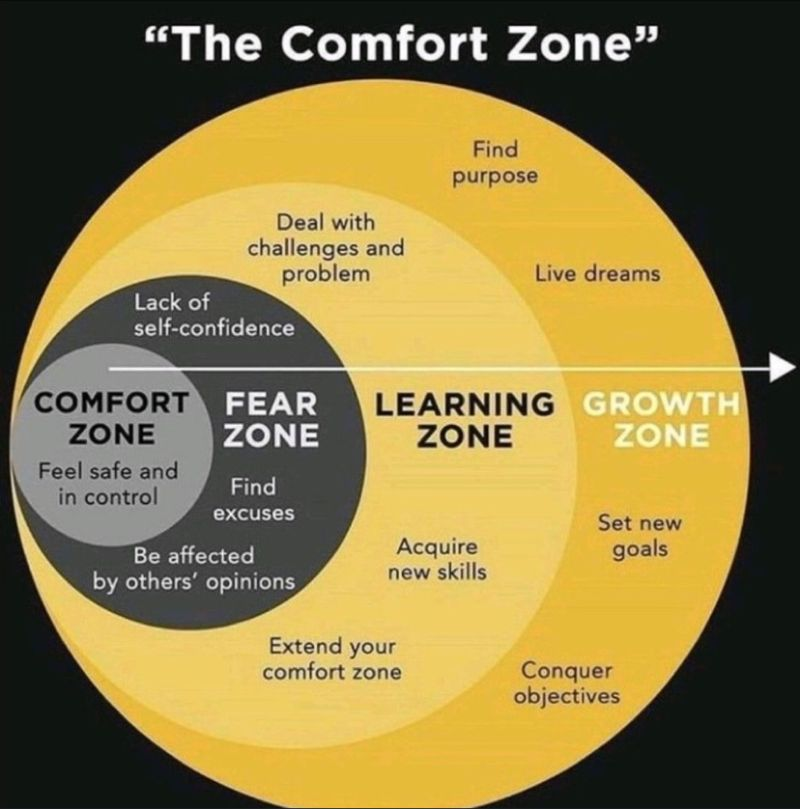Deliberate Practice and the Comfort Zone

Informed Purposeful practice, Deliberate practice
Developing skills that others have figured out, i.e. relying on an established knowledge base about what training techniques and methods work
Practicing with well-defined, specific goals in mind
Consistently moving outside your comfort zone
Using full attention and conscious actions,. Involves being fully present and engaged in your training
Using feedback and modification to reach your goals
Developing effective mental representations, i.e. developing new cognitive frameworks that allow you to master the skillset. It has been found in study after study of expert performers that they have developed advanced mental representations that allow them to overcome limitations faced by other performers.
Building upon your preexisting skillset, i.e. building newly acquired skills on top of previously acquired skills. This is the way that most learning is done and highlights the importance of mastering ‘foundational’ skills
Connection with Building a Second Brain
- It enables to connect with existing knowledge
- via cross linking and building the knowledge web
- Building newly acquired skills on top previously acquired skills that can be easily access from your CODE trace in the Second Brain
- By defining goals/OKRs embedded with your Second Brain one can embed working with goals in day to day knowledge work
- integrate goal reflection in Daily Journaling
- regularly reflect on OKRs and make it very easy to visualise and have access to the goals
Conclusion
BASB helps with informed purposeful practice. Especially connecting information, build ing on top of existing knowledge and embedding goals into everyday’s learning practice are powerful elements.
Linking
- MOC Building a 2nd brain
- [[Mindset]] (connecting with growth mindset)
- [[Atomic Habits - James Clear]] (connecting with forming habits)